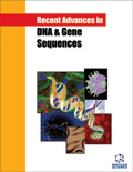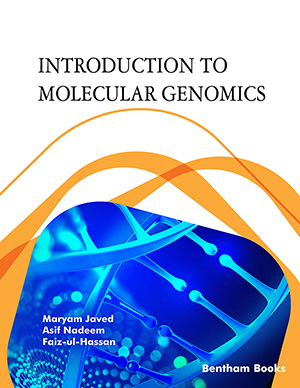Abstract
This paper reviews the general characteristics of exo and endopeptidases of microbial origin currently used in the milk industry. It also includes recent patents developed either to potentiate the enzymatic activity or to improve the resulting milk derivatives. The main application of these proteases is in the cheese-making industry. Although this industry preferentially uses animal rennets, and in particular genetically engineered chymosins, it also utilizes milk coagulants of microbial origin. Enzymes derived from Rhizomucor miehei, Rhizomucor pusillus and Cryphonectria parasitica are currently used to replace the conventional milk-clotting enzymes. In addition, the dairy industry uses microbial endo and exoproteases for relatively new applications, such as debittering and flavor generation in cheese, accelerated cheese ripening, manufacture of protein hydrolysates with improved functional properties, and production of enzyme-modified cheeses. Lactic acid bacteria play an essential role in these processes, hence these bacteria and the proteases they produce are currently being investigated by the dairy industry and are the subject of many of their patent applications.
Keywords: Acid lactic bacteria, bioactive peptides, cheese flavor, cheese ripening, coagulants, dairy products, genetically modified starters, milk-clotting enzymes, proteases, proteolysis.
Recent Advances in DNA & Gene Sequences (Discontinued)
Title:Recent Patents on Microbial Proteases for the Dairy Industry
Volume: 8 Issue: 1
Author(s): Lucia Feijoo-Siota, Lucia Blasco, Jose Luis Rodriguez-Rama, Jorge Barros-Velazquez, Trinidad de Miguel, Angeles Sanchez-Perez and Tomas G. Villa
Affiliation:
Keywords: Acid lactic bacteria, bioactive peptides, cheese flavor, cheese ripening, coagulants, dairy products, genetically modified starters, milk-clotting enzymes, proteases, proteolysis.
Abstract: This paper reviews the general characteristics of exo and endopeptidases of microbial origin currently used in the milk industry. It also includes recent patents developed either to potentiate the enzymatic activity or to improve the resulting milk derivatives. The main application of these proteases is in the cheese-making industry. Although this industry preferentially uses animal rennets, and in particular genetically engineered chymosins, it also utilizes milk coagulants of microbial origin. Enzymes derived from Rhizomucor miehei, Rhizomucor pusillus and Cryphonectria parasitica are currently used to replace the conventional milk-clotting enzymes. In addition, the dairy industry uses microbial endo and exoproteases for relatively new applications, such as debittering and flavor generation in cheese, accelerated cheese ripening, manufacture of protein hydrolysates with improved functional properties, and production of enzyme-modified cheeses. Lactic acid bacteria play an essential role in these processes, hence these bacteria and the proteases they produce are currently being investigated by the dairy industry and are the subject of many of their patent applications.
Export Options
About this article
Cite this article as:
Feijoo-Siota Lucia, Blasco Lucia, Rodriguez-Rama Luis Jose, Barros-Velazquez Jorge, Miguel de Trinidad, Sanchez-Perez Angeles and Villa G. Tomas, Recent Patents on Microbial Proteases for the Dairy Industry, Recent Advances in DNA & Gene Sequences (Discontinued) 2014; 8 (1) . https://dx.doi.org/10.2174/2352092208666141013231720
| DOI https://dx.doi.org/10.2174/2352092208666141013231720 |
Print ISSN 2352-0922 |
| Publisher Name Bentham Science Publisher |
Online ISSN 2352-0930 |
 68
68Related Articles
-
Editorial (Thematic Issue: Novel Data on the Pathogenesis of Atherosclerosis, Treatment Targets, and New Therapeutic Interventions in Lipid-Related Cardiovascular Risk Factors)
Current Pharmaceutical Design Mediterranean Diet And Longevity: An Example Of Nutraceuticals?
Current Vascular Pharmacology Nitric Oxide Synthase (NOS) as Therapeutic Target for Asthma and Chronic Obstructive Pulmonary Disease
Current Drug Targets Strategic Aspects of NPY-Based Monoclonal Antibodies for Diagnosis and Treatment of Breast Cancer
Current Protein & Peptide Science Understanding the Molecular and Cellular Changes Behind Aortic Valve Stenosis
Current Pharmaceutical Biotechnology Serum Thyroid Peroxidase Antibody Level and Incident Hypertension in Iranian Men: A Suggestion for the Role of Thyroid Autoimmunity
Endocrine, Metabolic & Immune Disorders - Drug Targets Anti-Diabetic Effect of Trigonelline and Nicotinic Acid, on KK-Ay Mice
Current Medicinal Chemistry Genetic and Epigenetic Biomarkers for Diagnosis, Prognosis and Treatment of Metabolic Syndrome
Current Pharmaceutical Design Renal COX-2, Cytokines and 20-HETE: Tubular and Vascular Mechanisms
Current Pharmaceutical Design Antioxidant Activity and Chemical Components as Potential Anticancer Agents in the Olive Leaf (Olea europaea L. cv Leccino.) Decoction
Anti-Cancer Agents in Medicinal Chemistry Magnetic Resonance-Based Metabolomics for Understanding Neurological Disorders: Current Status and Statistical Considerations
Current Metabolomics Patent Selections
Recent Patents on Cardiovascular Drug Discovery The Effect of PDE5 Inhibitors on the Male Reproductive Tract
Current Pharmaceutical Design Drugs and Foods for Chronic Subclinical Inflammation in Humans
Current Medicinal Chemistry - Immunology, Endocrine & Metabolic Agents Lack of Evidence for Deterioration in Endothelial Function Following Ticagrelor Treatment Cessation
Current Vascular Pharmacology Arterial Stiffness and Hypertension: A Review of Mechanism and Clinical Relevance
Current Hypertension Reviews The IL23/Th17 Pathway as a Therapeutic Target in Chronic Inflammatory Diseases
Inflammation & Allergy - Drug Targets (Discontinued) Impact of Pressure Drop on Pulse Wave Velocity Along Experimental Stenoses
Vascular Disease Prevention (Discontinued) Efficacy of the Newest COX-2 Selective Inhibitors in Rheumatic Disease
Current Pharmaceutical Design Biochemical Markers of Cardiovascular Damage from Tobacco Smoke
Current Pharmaceutical Design












